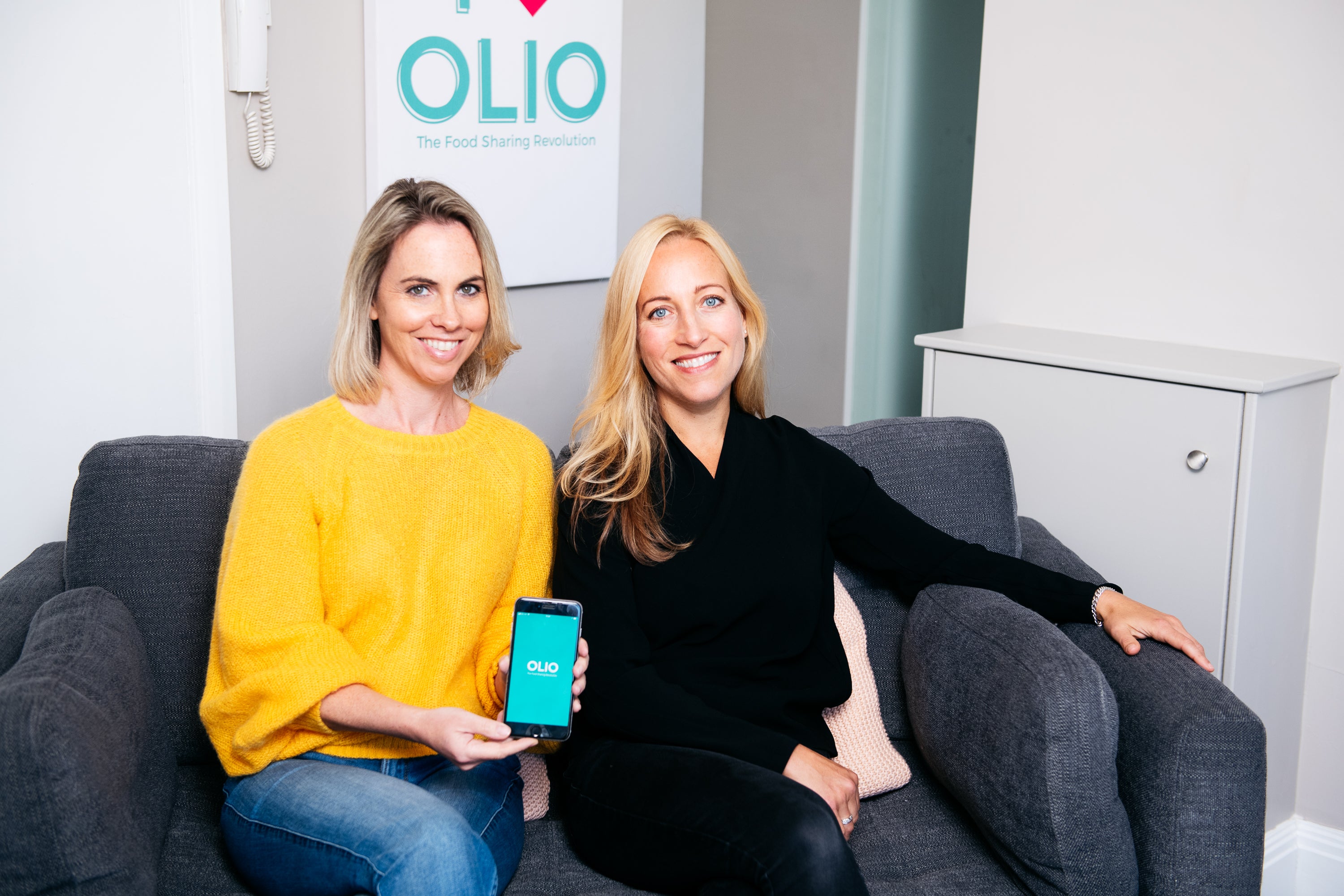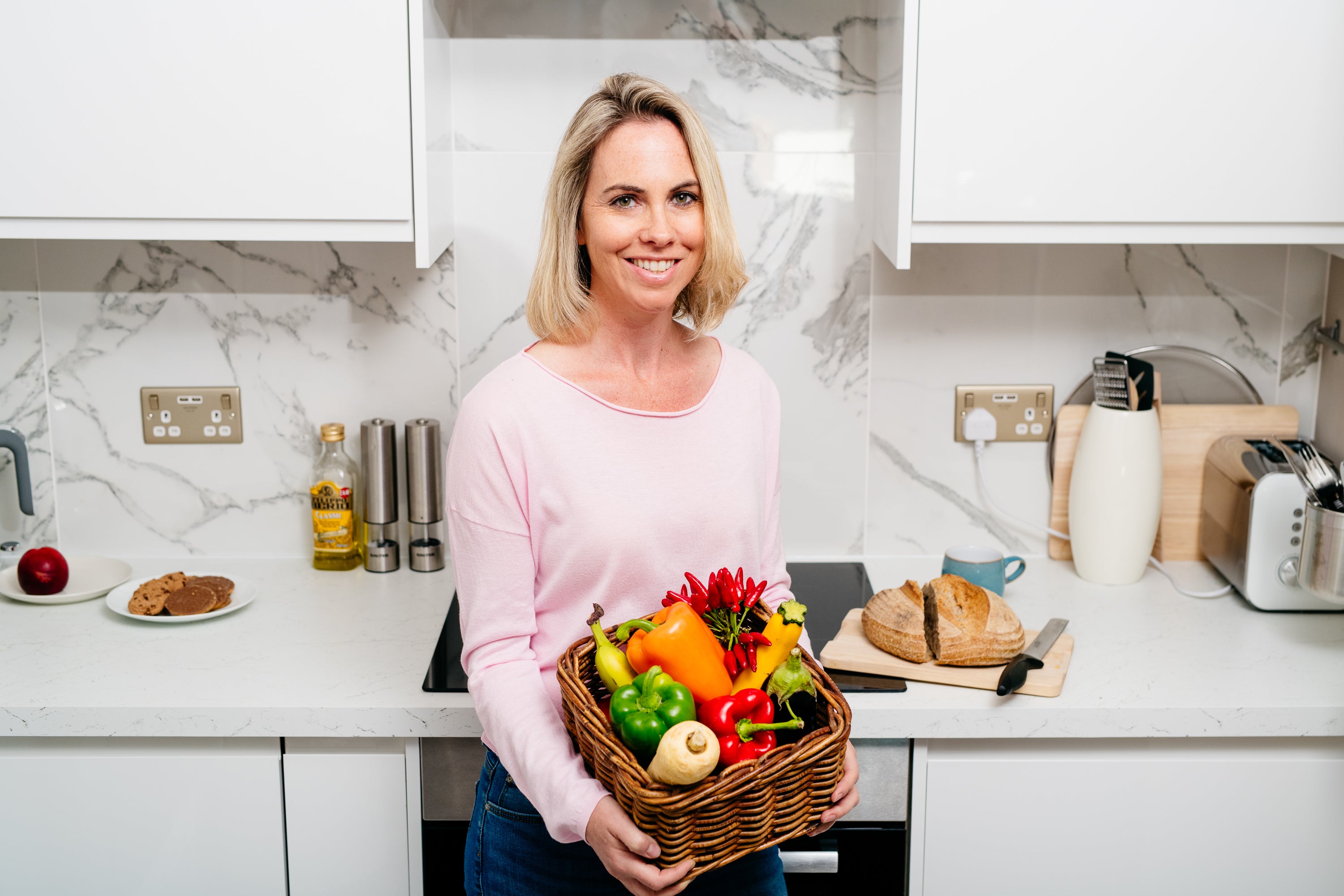How Tessa Clarke and OLIO are tackling the food waste crisis
OLIO was born out of a ‘pathological hatred’ of food waste. Instead of waste, Tessa Clarke tells Andy Martin, we should share


Tessa Clarke didn’t just ride a horse when she was growing up – she rode a pig and a cow too. And a sheep called “Sheepy” who (just like the sheep in your dream) was good at jumping fences. She lived on a farm in the Yorkshire Dales. It was here that she acquired her “pathological hatred of food waste” – or, indeed, wasting anything else – that has now crytallised in her “sharing” app, OLIO.
Her mother was intent on saving an ancient breed of pig, the Oxford sandy and black, from extinction. “Watch those pigs,” she would tell her daughter, “and let me know when they start having sex.” Tessa Clarke and her brothers were put to work as soon as they were old enough to carry a bucket. “Our parents had no qualms about child labour,” she says. “You learn problem-solving and resilience growing up on a farm.”
After graduating in social and political sciences at Cambridge, she knew one thing: “I knew I didn’t want to become a farmer.” She’d done that. But when she looked at democracies around the world and in particular the rising power of the tech giants, she was conscious that “for every intended consequence there is a whole raft of unintended consequences.” It was this fundamental conviction that led her in the direction of OLIO.
Clarke says she has her most creative breakthroughs when she is not at her desk – running, cycling, walking or, in the case of OLIO, moving house. After doing an MBA at Stanford and stints as a strategy consultant, she was living in Geneva but had decided to pack up and return to England. When, on 17 December 2014, the removals men came to collect all their belongings, they insisted, reasonably enough, that all the food had to be chucked. Clarke revolted against the idea of throwing anything away. She rushed around trying to find a neighbour to take it all. No one was in. She tried to give it away to the homeless lady who was regularly to be found outside the local supermarket. But she wasn’t out.
Tessa Clarke was stuck. “There was no one to give it to.” While the removals men became increasingly impatient with this mad woman who refused to throw anything away, she and her young kids ended up consuming improbable amounts of cabbage, sweet potato and yoghurt. “We packed the rest of the food. It was probably a criminal offence, but it would have been a greater crime to have put it in the bin.”
Clarke realised that there must be people all around the world in her position, of wanting to give away their food, and plenty of other people who would love to receive it. But there was no way of putting them together. Yet. She flew back to England determined to fix the problem. “Most people thought I was crazy,” she says. But she found one woman who didn’t – Saasha Celestial-One (her real name), a friend from her Stanford days, and daughter of hippies from Iowa who dreamed of a more harmonious, more collaborative world.
They kicked off with a 12-strong WhatsApp group and a food-sharing experiment. Now they have 50,000 ‘ambassadors’ spreading the word
They launched the OLIO app in 2015. They liked the word “olio” for its two symmetrical o’s and its many meanings – a miscellaneous collection of things or a stew using up old vegetables. “We could have called it a food exchange network,” says Clarke. “But the o’s suggest a circular economy encircling the planet. It helped to build a brand.”
Meanwhile, they were studiously researching – and the facts, when you look at them properly, remain shocking, almost overwhelming. “We felt as if we had woken up in the middle of a dystopian nightmare – but this was our reality. It’s insanity, but no one was screaming about it from the rooftops.” One quarter of greenhouse gases are produced by the global food system. One third of all food gets thrown away. All that wasted food contributes 8 per cent to our collective carbon footprint – four times more than pre-pandemic aviation. At the same time 800 million go to bed hungry. “They could be fed on a quarter of the food we waste in the west,” says Clarke.
She sees OLIO as very much a rainbow coalition. The main problem with big tech is the predominance of “white guys who went to Ivy League colleges and dropped out”. Similarly, if you drill right down, the ultimate cause of the climate crisis is “a lack of diversity. If we had had more voices, more ethnicities, more women, more people from different social backgrounds, we would not have constructed a system that requires the annihilation of nature. A lot of people talk about the climate crisis in the future tense, but it’s now, it’s here, it’s already devastating lives.”
Clarke suggests a useful analogy: if we counted our food waste as a country, in terms of greenhouse gas emissions, it would come third after China and the US. “A landmass larger than China is used to grow food that is not eaten. A quarter of the water humanity uses every year is used to grow it.” Food waste is adding to deforestation, soil degradation, species extinction, and the displacement of indigenous people.

She is passionate and persuasive. I know she is because I have now downloaded the OLIO app and am looking forward to sharing. Everyone can and should do their bit, says Clarke. Half of all food waste occurs in the home (by comparison, only 2 per cent is down to retail stores).
Clarke wants to do nothing less than reconstruct the entire economic system. “Someone said to me, ‘If you don’t do this, who will?’” She argues that at present we are faced with a dichotomy: charity is good but doesn’t scale; business does scale but also does bad things. “Our kids will look back and be shocked that business would generate outsized profits but then destroy the world around us.” Her vision is “profit with purpose”. “The current model of consumption is broken. We are consuming as if we had 1.75 planets. It’s not sustainable. We are on track to consume as if we had three planets by 2030.”
OLIO has created a community. They kicked off with a 12-strong WhatsApp group and a food sharing experiment. Now they have 50,000 “ambassadors” spreading the word and another 20,000 “food waste heroes”, collecting and distributing. And they are working with Tesco stores around the country. Having signed up I find that there are no less than 5,020 “OLIOers” near me who made a total of 124 listings last month alone. Now all I have to do is take a photograph of that bag of rice and post it – or possibly that old Lee Child novel (you can share books, toys, clothes, kitchen utensils, toiletries as well as food – and in my area the list includes crayons, a fog extractor and foam earplugs). If I should want to buy or sell homemade food or art or crafts I can use “MADE”, a new option on the app.
Read More:
By any standard Tessa Clarke and her friend Saasha Celestial-One have already made a massive impact. “In the post-Covid world,” says Clarke, “people want to connect and do something.” Her other simple message that has stuck with me is, “We need to stop producing so much crap.”
PS And Clarke was right about another thing: it took less than 20 minutes for someone to reply to my first posting (apricot jam and marmalade).
Join our commenting forum
Join thought-provoking conversations, follow other Independent readers and see their replies
Comments